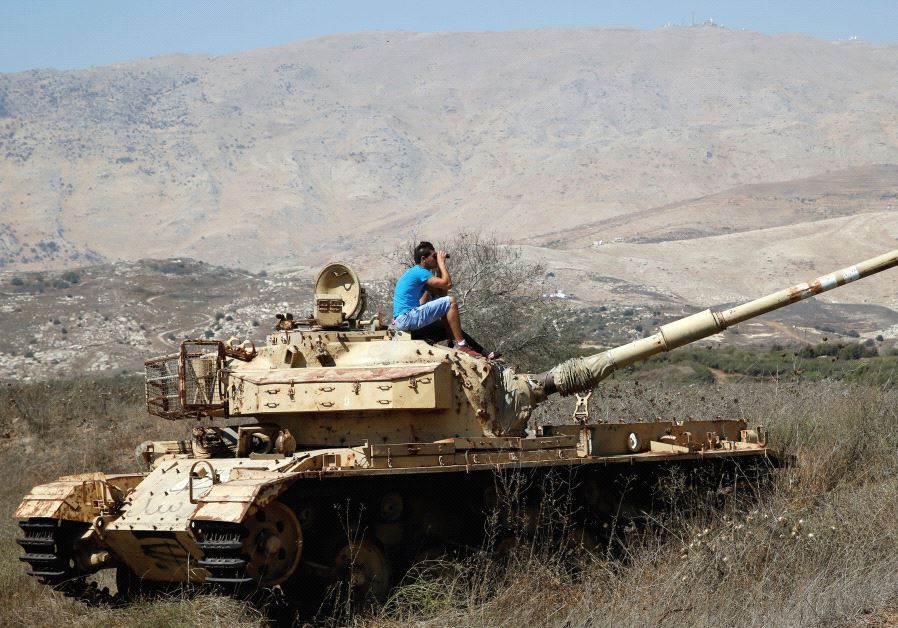A new drift in Syrian-Israeli conflict?
Israel should reach out to the US to get it involved alongside Israel in a situation which closely concerns President Donald Trump’s assumed interest.
 A man sits on an old tank as he watches fighting taking place in Syria from the Israeli side of the border fence
A man sits on an old tank as he watches fighting taking place in Syria from the Israeli side of the border fence